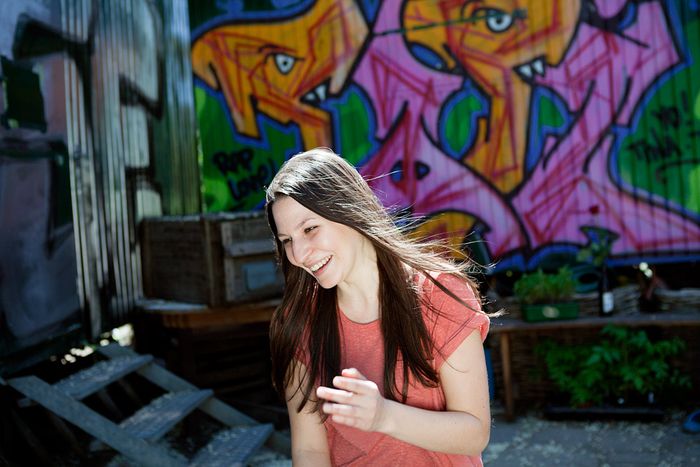
Rosenduft: intercultural city garden set up by Bosnian women refugees (12 images)
Published on
It is an active garden where people share tools, enjoy coffee breaks together in the afternoon and host small summer dinner parties on Fridays. 'The idea of the intercultural gardens is to bring together refugees, immigrants and locals,' says Michael Kraft, head of the Südost Europa Kulture V association, which has worked in Rosenduft since 2006. 'You have your own parcel of land but you also do something collectively. That creates the sense of community.' There are a total of 127 gardens within the network in Germany, finds Finnish photojournalist Maria Halkilahti
This article is part of the seventh edition in cafebabel.com’s 2012 feature focus series on multiculturalism in Europe. Many thanks to the team at cafebabel.com Berlin
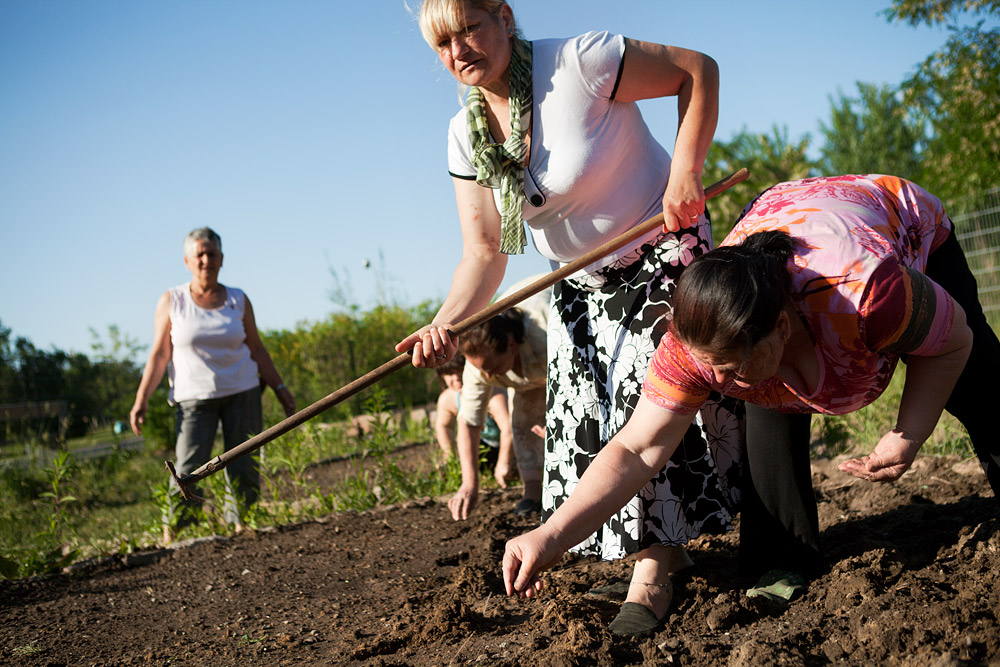
Bosnians, Germans and a Nigerian gardening in Rosenduft. Pictured, Bosnians plant together in a shared lot on a Friday evening. 'Most of the Bosnian ladies have known each other since the late nineties, as they participated in the same therapy group for refugees in Germany,' says Begzada Alatović, head of the Rosenduft project. 'We heard about the Göttingen multicultural gardens (started in 1995 - ed) and thought this could be something we could do too' (Image: © Maria Halkilahti for 'Multikulti' aka 'multiculturalism on the ground' by cafebabel.com, Berlin 2012)
c
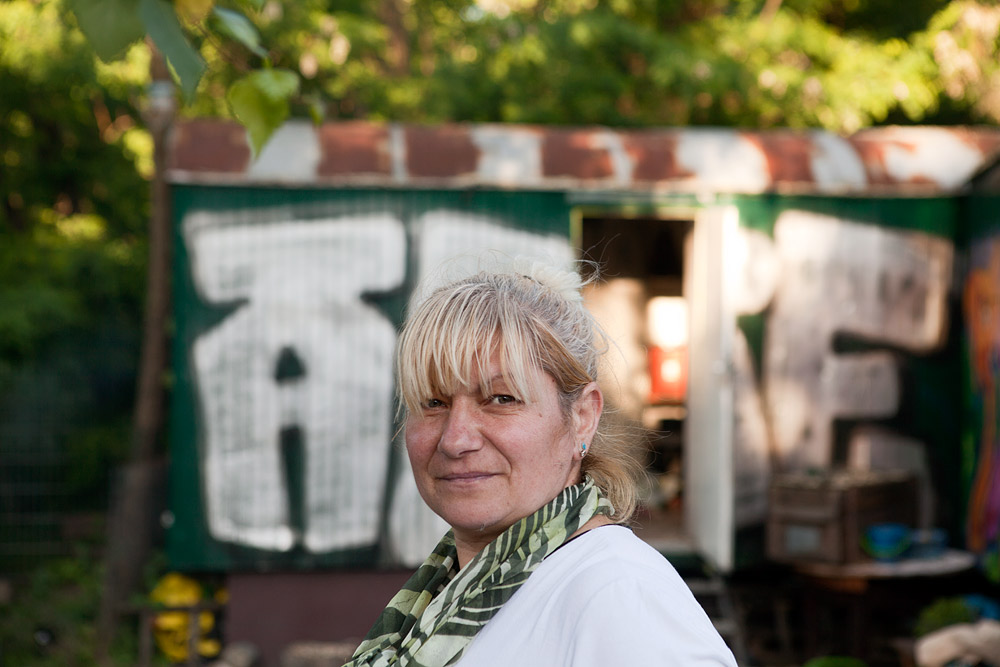
‘I came to Germany in 1995. I was one of the first in the garden. For me this is not so much about growing food but to meet friends. We talk about everything: everyday life, family, gardening and sometimes about our shared history. Here you can laugh and cry. It doesn’t matter whether you are a Bosnian, a German or an American. Background doesn’t matter’ (Image: © Maria Halkilahti for 'Multikulti' aka 'multiculturalism on the ground' by cafebabel.com, Berlin 2012)
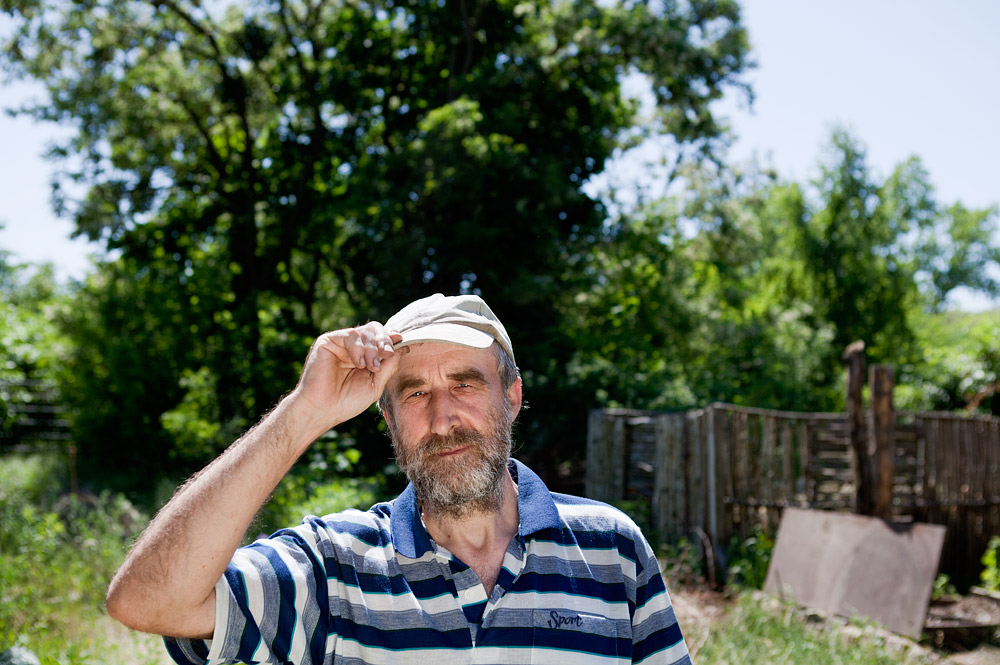
'I’ve worked here since March. I’m German and had employment support. I have some experience in gardening, I’ve worked in a cemetery and a school. People here are friendly and I have a lot of fun - it feels almost like a hobby. There are some very nice traditions in the garden. If someone has a birthday or is leaving, we have a coffee or cake, or give them flowers' (Image: © Maria Halkilahti for 'Multikulti' aka 'multiculturalism on the ground' by cafebabel.com, Berlin 2012)
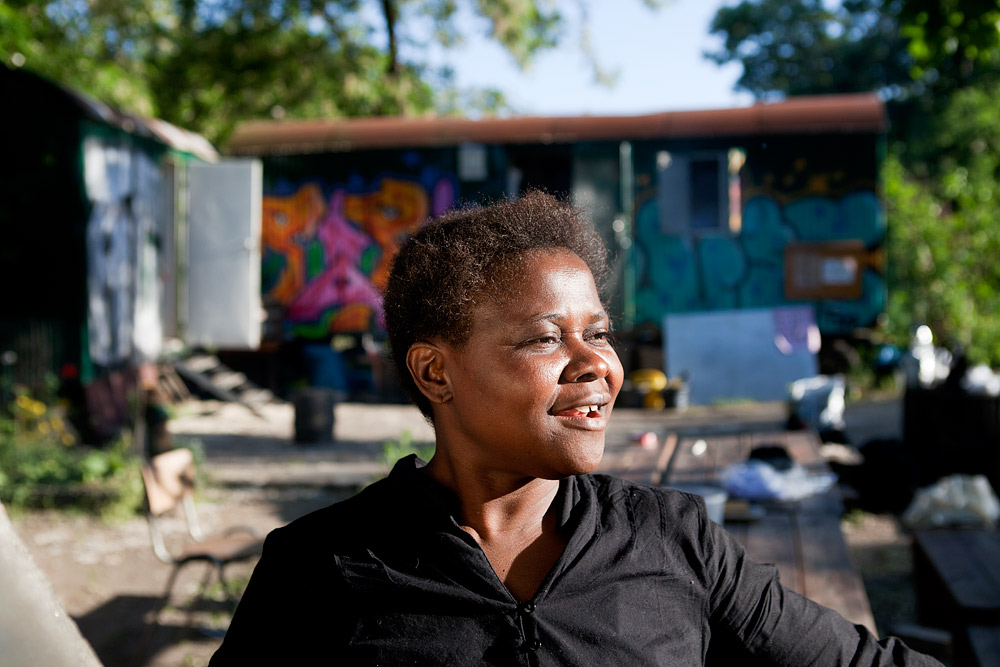
'I came from Nigeria seven years ago. We Nigerians are farmers. I’m not good at farming, but I like gardening. That’s why I’m here in Rosenduft. I get energy from getting something to grow. I’m interested in other cultures. I’m curious to see what the others grow and how. I’ve also planted some African seeds here. Last time they didn’t succeed, but this time I hope they’ll make big pumpkin-like fruits' (Image: © Maria Halkilahti for 'Multikulti' aka 'multiculturalism on the ground' by cafebabel.com, Berlin 2012)
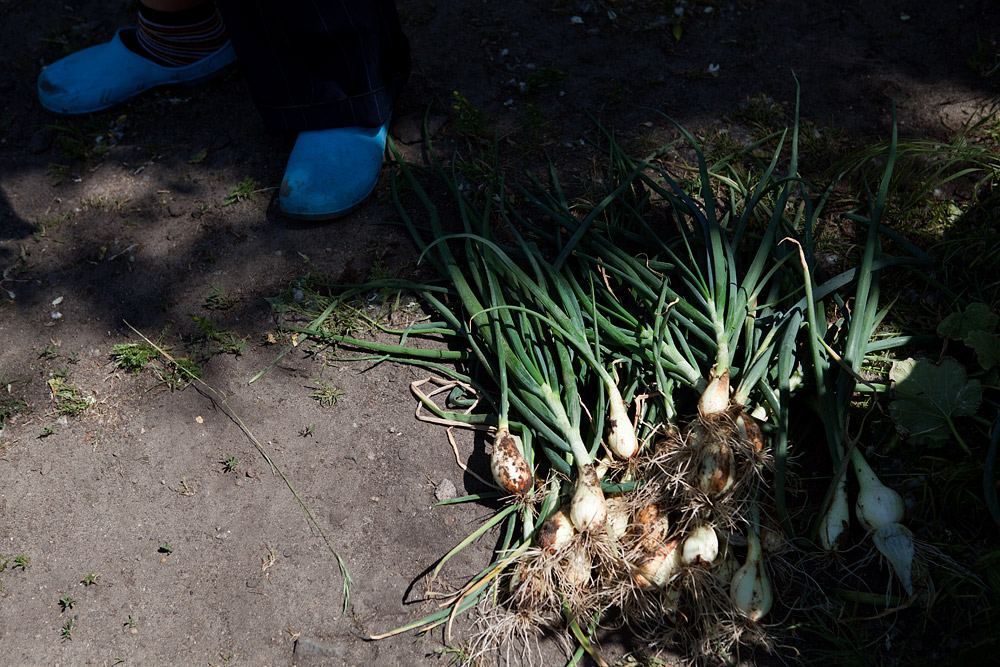
Each farmer decides what she or he wants to plant. Onions are ready at the end of May (Image: © Maria Halkilahti for 'Multikulti' aka 'multiculturalism on the ground' by cafebabel.com, Berlin 2012)
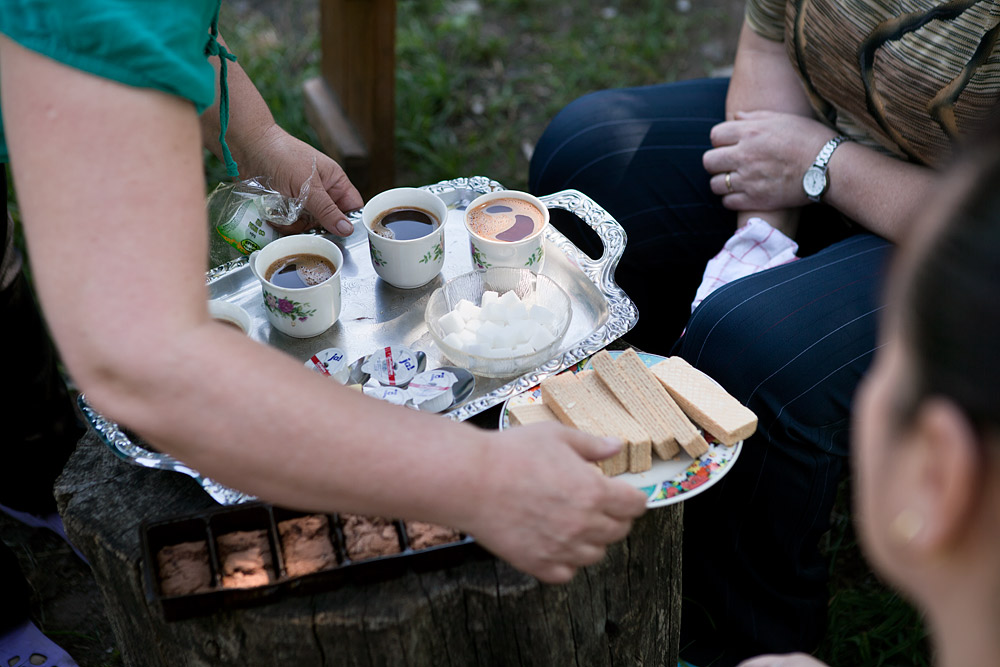
'Bosnian style' coffee is cooked every day in the garden (Image: © Maria Halkilahti for 'Multikulti' aka 'multiculturalism on the ground' by cafebabel.com, Berlin 2012)
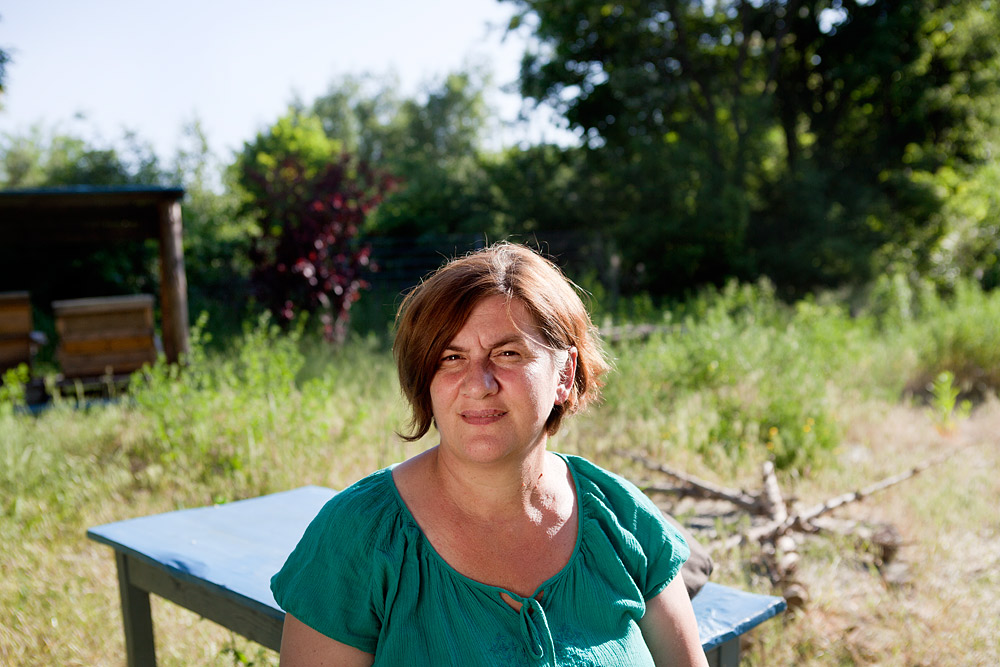
'I’m Bosnian and work for the association. We work with refugees and immigrants and this is just one project. Not everyone is interested in gardening, but some find it helpful and enjoyable. Almost all of the Bosnian women had already gardened at home: Traditionally women worked in the garden and men work outside the home. Sometimes it feels we would need more land, but we are happy with what we have. This garden is small so everyone knows each other' (Image: © Maria Halkilahti for 'Multikulti' aka 'multiculturalism on the ground' by cafebabel.com, Berlin 2012)
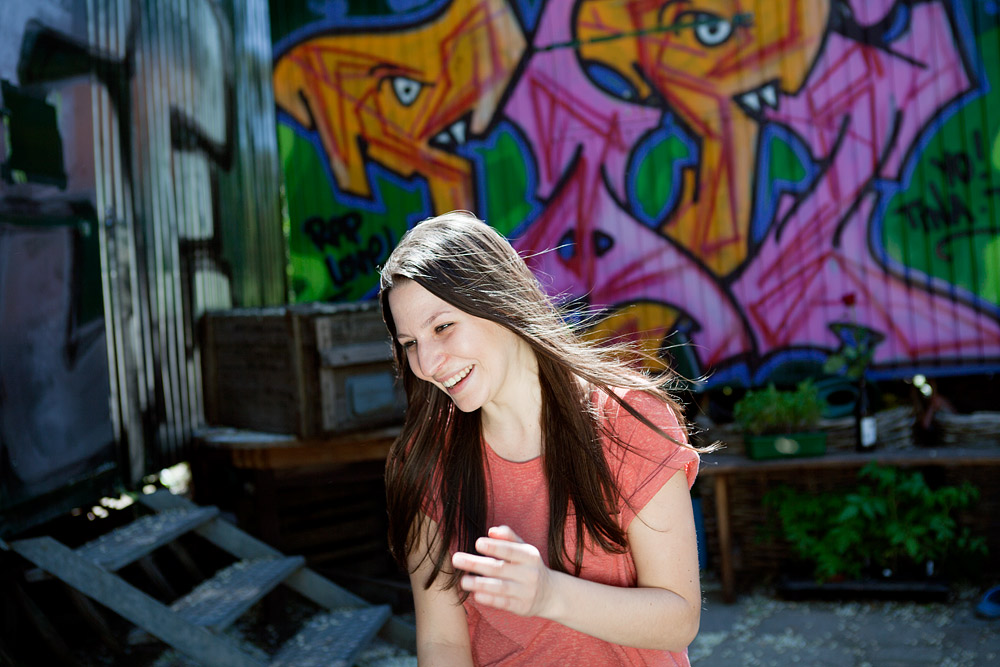
'I came from Slovenia to Berlin to do my internship at the association. I study cultural anthropology. I’ve worked here for three months and have one more month to go. I’m interested in Balkan culture. I can speak some Bosnian so I can talk to the ladies who don’t speak German. I found this association interesting because they work with Balkan people and try to help the Roma integrate. Integration is important, but people should also be able to retain their own culture' (Image: © Maria Halkilahti for 'Multikulti' aka 'multiculturalism on the ground' by cafebabel.com, Berlin 2012)
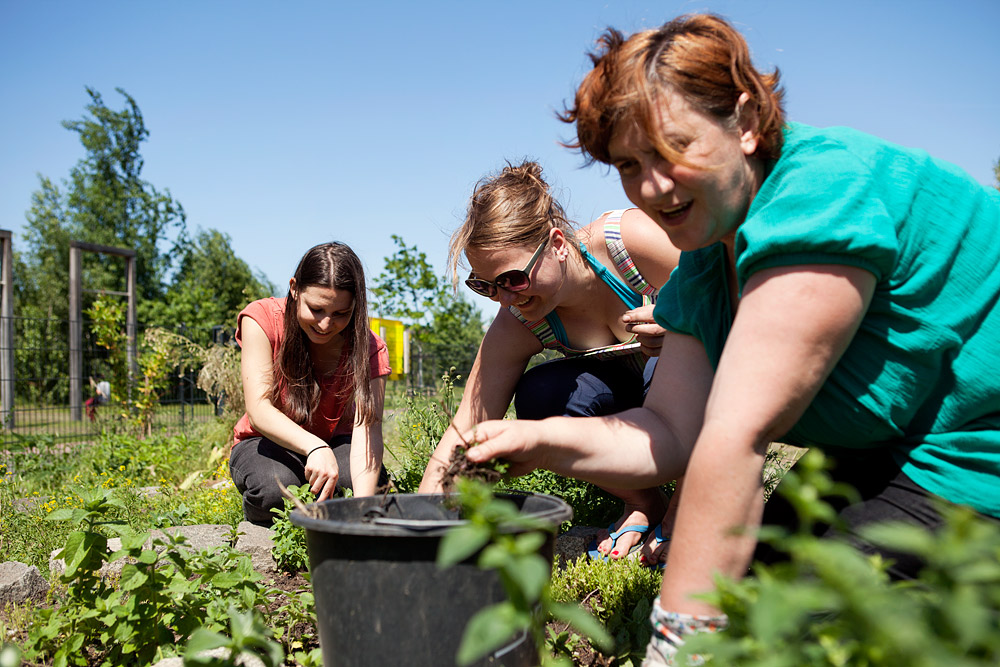
The interns Nina and Hanna help Begzada plant herbs. For her birthday she got a rose during coffee break (Image: © Maria Halkilahti for 'Multikulti' aka 'multiculturalism on the ground' by cafebabel.com, Berlin 2012)
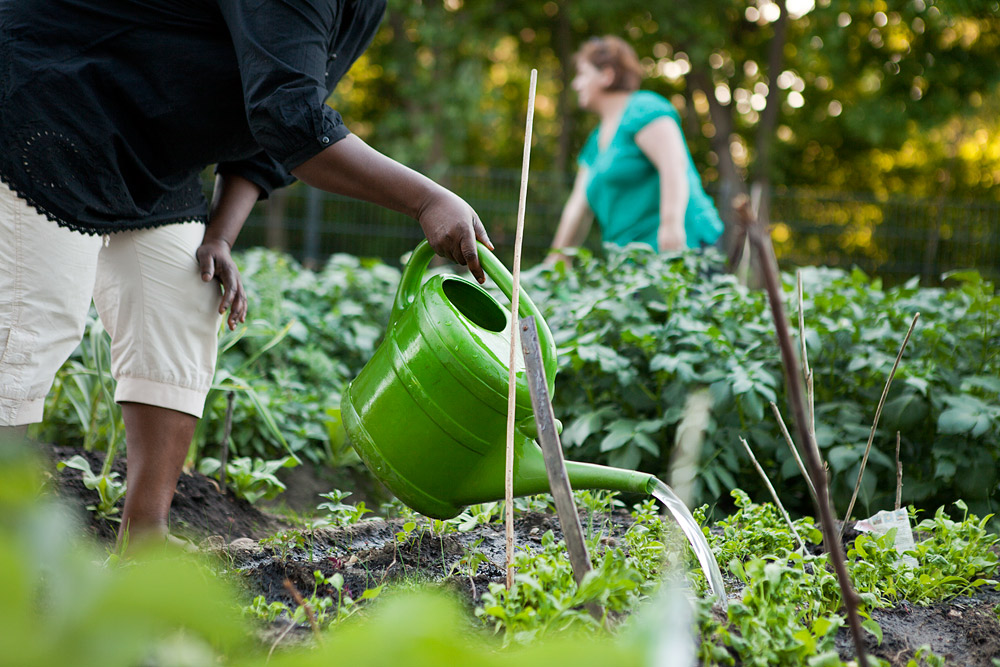
The garden is located next to a park and people passing by often stop for a chat. 'People are really interested in gardening. They are always asking for a parcel of land but there is not enough space for everyone,' says Alatović (Image: © Maria Halkilahti for 'Multikulti' aka 'multiculturalism on the ground' by cafebabel.com, Berlin 2012)
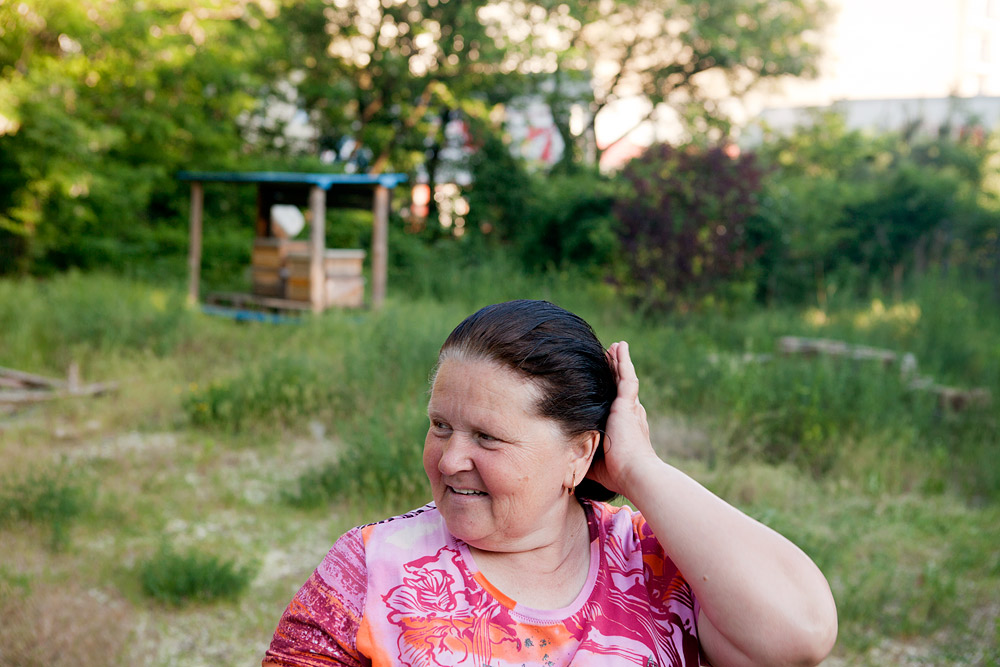
'I came to Germany in 1995 after Srebrenica. I’ve been in this garden from the beginning. I like to come here for company and friends, but I also have my private life. It feels very free here because we don’t have any secrets. First we talked about Bosnia but you can’t really talk about it forever. Nowadays we often discuss our daily life' (Image: © Maria Halkilahti for 'Multikulti' aka 'multiculturalism on the ground' by cafebabel.com, Berlin 2012)
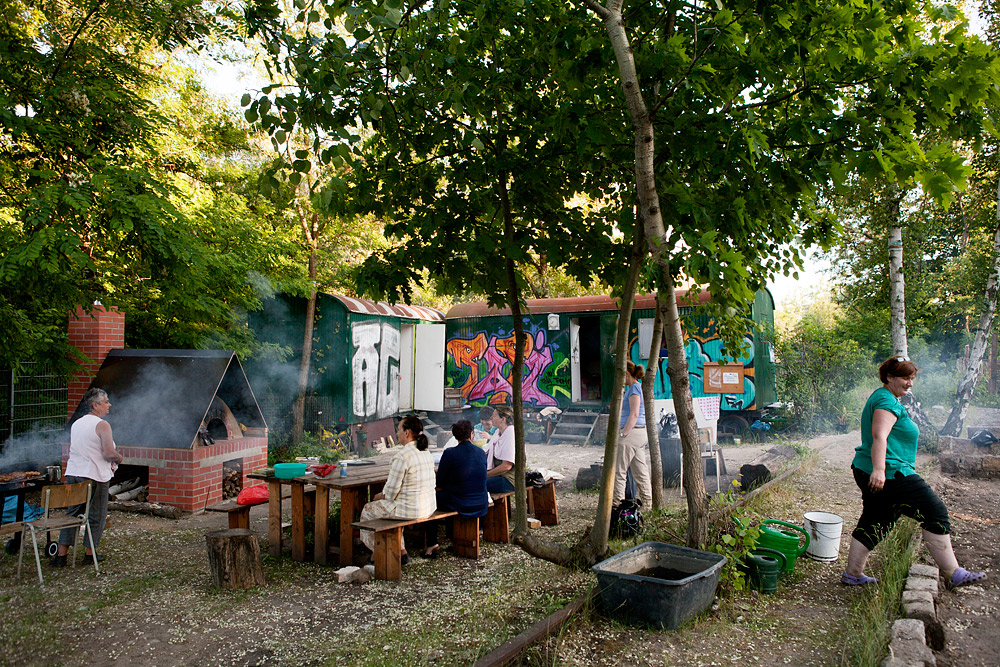
All of a sudden the work has turned into preparations for a garden party. A large table is set up and food is cooked on the grill. Sometimes the women bring along their families (Image: © Maria Halkilahti for 'Multikulti' aka 'multiculturalism on the ground' by cafebabel.com, Berlin 2012)
This article is part of the seventh edition in cafebabel.com’s 2012 feature focus series on multiculturalism in Europe. Many thanks to the team at cafebabel.com Berlin



